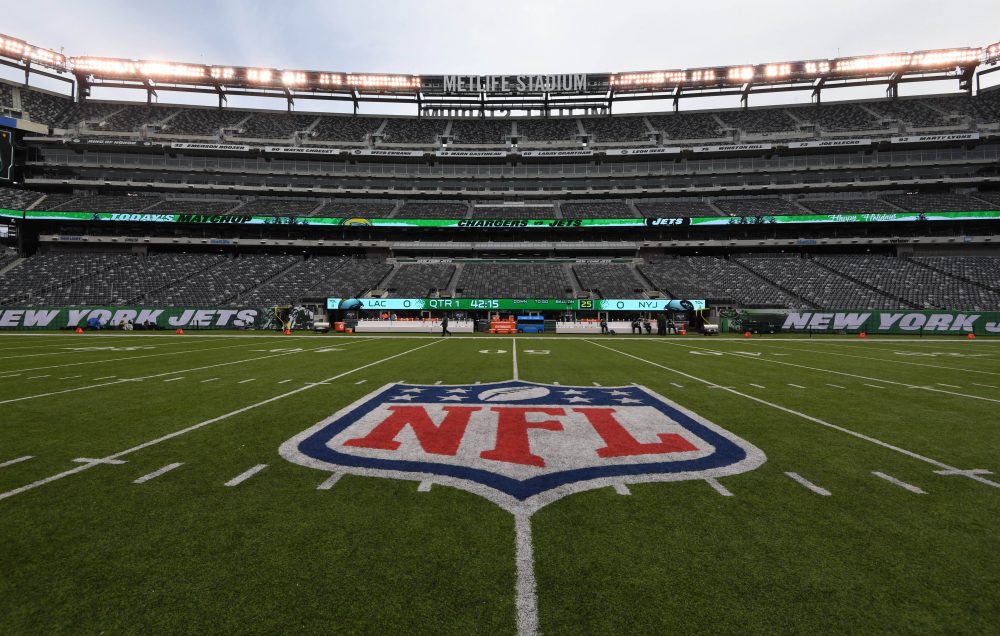While America’s biggest sports league is facing down a nearly $14 billion jury verdict that found its out-of-market Sunday Ticket package is an antitrust violation, the NFL remains confident of its chances on appeal, whether that’s to the Ninth Circuit Court of Appeals or the Supreme Court.
The league has been here before. In April 2011, a federal district court judge overturned the NFL lockout, which the league believed was necessary to get to a viable labor deal. Days later an appeals court stayed that ruling and the league has essentially been on an economic joyride ever since.
And in 2015 a federal district judge ruled for Tom Brady in his lawsuit over his DeflateGate suspension. That too was later overturned by an appeals court.
So while the league is not happy with the jury outcome, it also was not completely unexpected. Juries can be swayed by stories of large corporations overcharging their customers, even when the issues at hand might not run technically against antitrust law.
Jodi Balsam, a former NFL lawyer, and professor of sports law at Brooklyn Law School, argues the NFL should never have been a defendant. “In a 1977 antitrust case, Illinois Brick v State of Illinois, the Supreme Court established the indirect purchaser rule,” she explained. “It generally prevents indirect purchasers from suing for damages. Recovery is limited to the party that actually sold the product to the consumer. So under that rule, plaintiffs should be able to sue only DirecTV and not the NFL.
“Basically, this verdict is only the starting point for the next round of appeals.” DirecTV aired Sunday Ticket from 1994 through 2022.
The jury heard during the trial that the NFL and DirecTV kept the price of Sunday Ticket artificially high and rejected options to make single teams, or even standalone games, available. Instead buyers have to agree to all out-of-market teams and games. Whether the league wins on appeal–or on a motion for the judge to overrule the jury verdict as being inconsistent with the law–it is unclear now whether the league and current Sunday Ticket rights holder YouTube TV can continue with the traditional pricing structure.
Again, even if the NFL is confident on appeal (and this case was dismissed at one point only to be revived by the Ninth Circuit), one could imagine Congress trying to get involved now that the cat is out of the bag on how the NFL and DirecTV appeared to have kept prices artificially high. And does YouTube TV continue offering a level of prices that a jury found were the byproduct of antitrust violations?
The verdict does not appear to prohibit the NFL from keeping its Sunday Ticket contract with Google’s YouTube TV.
“They can continue pooling their rights as long as they don’t engage in price fixing with the distributor of those pooled telecasts,” Balsam said. “The antitrust violation that undergirds this verdict is that the NFL and DirecTV conspired to fix the price that DirecTV sold the product at.”
But if the pricing does come down, or fans are allowed to buy just one team’s games, that could conflict with the league’s broadcast partners who have long viewed Sunday Ticket as cannibalizing their audiences, and pressured the NFL to keep prices high. It’s unclear what language is in the broadcast contracts that might account for the NFL under legal duress liberating Sunday Ticket from the take every team or no team approach.
The trial, which began June 6, had in-person testimony from NFL commissioner Roger Goodell, Dallas Cowboys owner Jerry Jones and former CBS Sports boss Sean McManus. Their testimony and others, as well as documents produced at the trial, showed the NFL turning down options to make the out-of-market package more broadly distributed and cheaper.
The NFL had argued Sunday Ticket is an offshoot of its broadcast contracts, which are immune from antitrust scrutiny because of the 1961 Sports Broadcasting Act. And the league argued Sunday Ticket is part of a pro-competition approach to broadcasting that sees most of the NFL’s games air on free TV.
The jury clearly did not buy that reasoning. Moving forward, the judge in the case must handle post trial motions, after which the NFL can appeal–assuming the lawsuit isn’t dismissed by the jurist. The first stop would be the Ninth Circuit, and if the league fails there, then a bid for the Supreme Court.
The High Court has already had one look at this case, in 2020 declining to hear an NFL appeal of the Ninth Circuit reinstatement of the case. But in a side opinion then, Justice Brett Kavanaugh wrote, “[A]antitrust law likely does not require that the NFL and its member teams compete against one another with respect to television rights” because “[t]he NFL and its member teams operate as a joint venture.”
While odds are usually slim in getting a case before the Supreme Court, Kavanugh’s side decision might improve those odds for the NFL. Of course, the last time the NFL argued a case before the high court, in 2009, it maintained the league’s teams were a joint venture and thus immune from antitrust scrutiny. The court unanimously ruled otherwise

